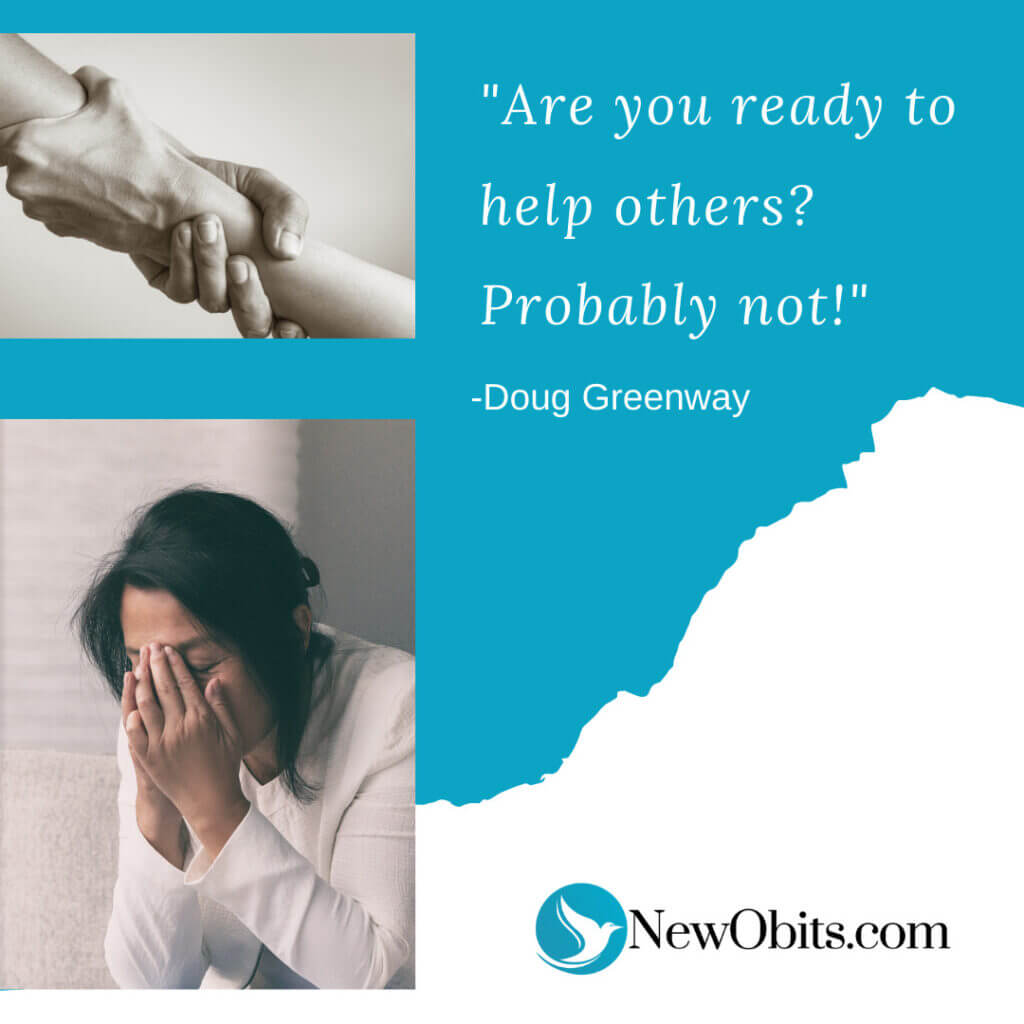
It is to be expected that we will turn to our friends and support system in times of grief, but what MAY be shocking to us is that so much of this help doesn’t help.
1. They don’t really “know how we feel.”
Our friends may THINK they do, but they don’t. Their sack on the back is different than ours and each relationship is unique and that includes the one we just lost through a death, divorce, dismissal from job, financial ruin etc.
2. Our friends believe we are fragile, and they are afraid of our feelings. Maybe you had a parent or teacher who witnessed emotional outbursts from you and said something like, “Stop that crying or I’ll give you something to cry for.” Likely we first heard this when we were very young.
Showing our feelings can cause others to become uncomfortable, because they are uncomfortable in showing their feelings. They say: “Get a hold of yourself.” The English say: “Keep a stiff upper lip.”
3. Our friends may try to change the subject.
In my family, it was “Now, let’s talk about something nice.” In your family, it may have been “How are you doing?” Maybe I said, “I’m heartbroken and I miss him/her so much.” They say, “Don’t feel bad. He/she is not in pain anymore!” The implication is that if your loved one is no longer suffering, then you shouldn’t be either. If you lost your job, “You’ll get a better job soon, and see this was a blessing.”
4. Our friends may try to intellectualize.
According to statistics, we will each experience the death of a loved one every nine to thirteen years. This means that losses are not an everyday occurrence, and yet some of our friends just want to explain away our loss as a certain eventuality. And we just need to decide to move on.
“Be thankful you have other children. He/she is in a better place. She led a full life. You’ll find somebody else to love someday. Be grateful you had them for so long.” Losses that are more infrequent (divorce, getting fired, chronic disease, etc. generate similar comments that (A) are helpful or (B) are not!
5. Many friends don’t want to talk about death. They won’t say, “He died.” They say “he passed on, passed away, went to sleep, expired” or “We lost mother.”
“God called your daddy home” may SOUND good, but it makes God out to be the bad guy. “What happened to grandpa?” That’s the simple question a child may ask. If they are told, “Grandpa’s gone to sleep with Jesus,” this makes the child afraid to go to sleep.
Give the questions of a child simple honest answers and you’ll put good material in their “sack.”
Are you ready to help others in their grieving? You may not be as ready as you think you are! Consult The Grief Recovery Handbook by James and Friedman for further thoughts and discussion.

Doug Greenway
These blog articles are written by the retired minister and former educator and counselor, Doug Greenway. He'd love to hear from you with your comments, questions, or suggestions for future topics. You may reach Doug at doug_greenway@yahoo.com.
